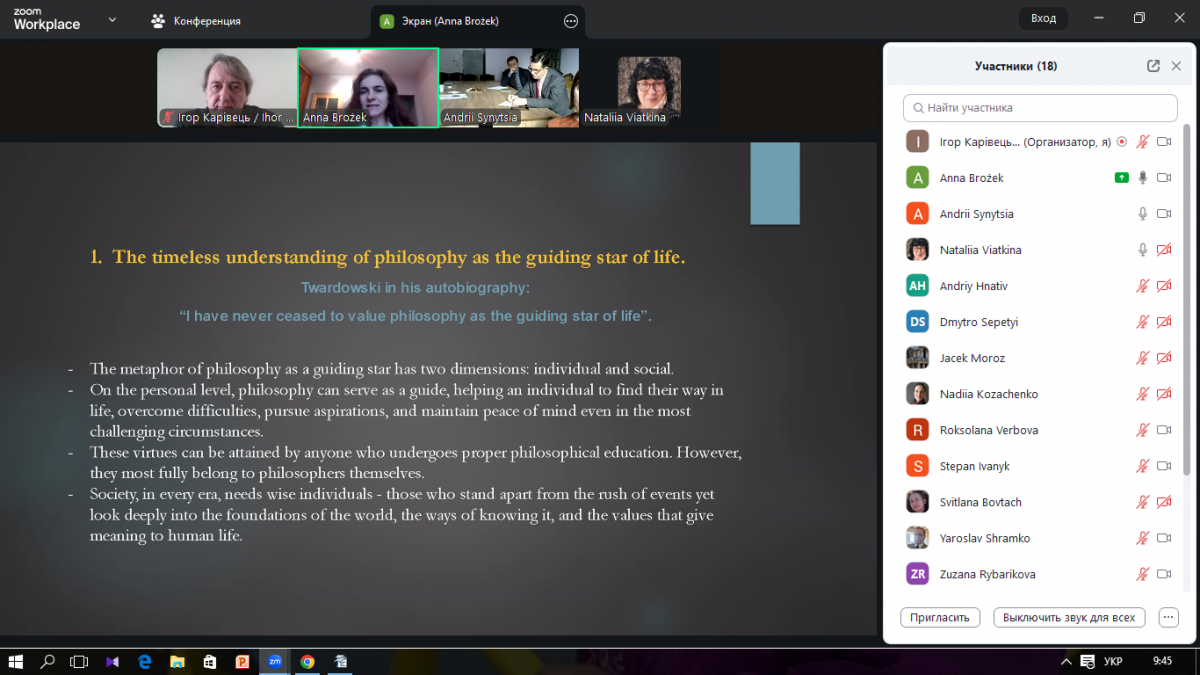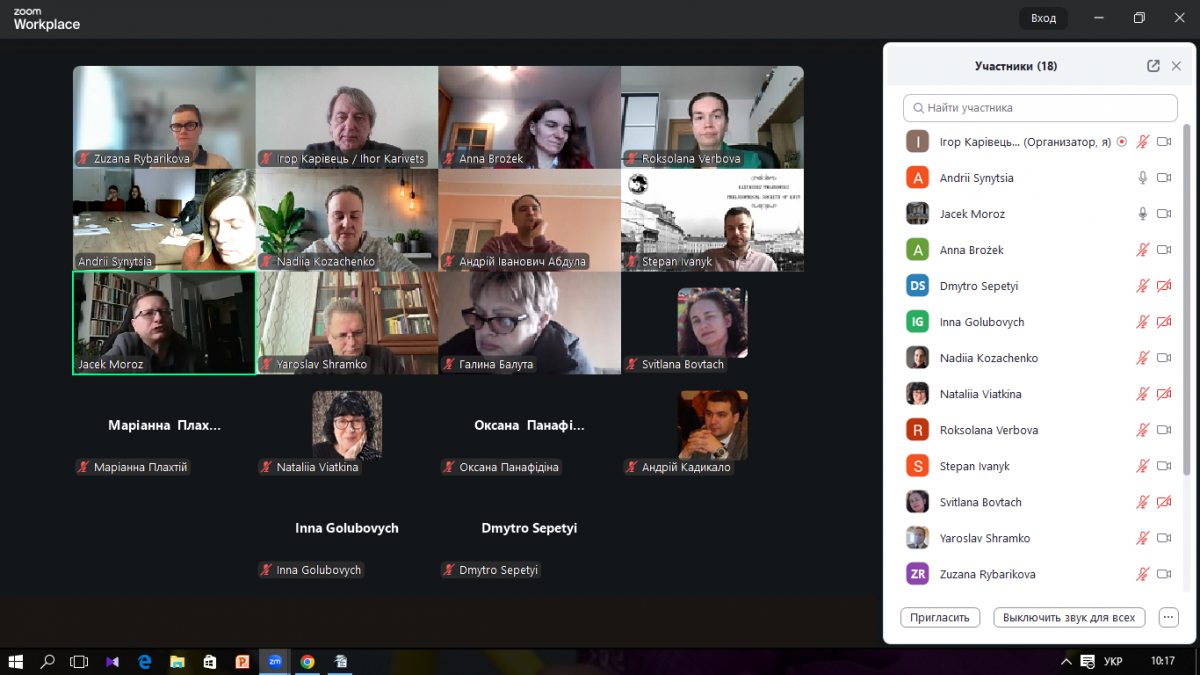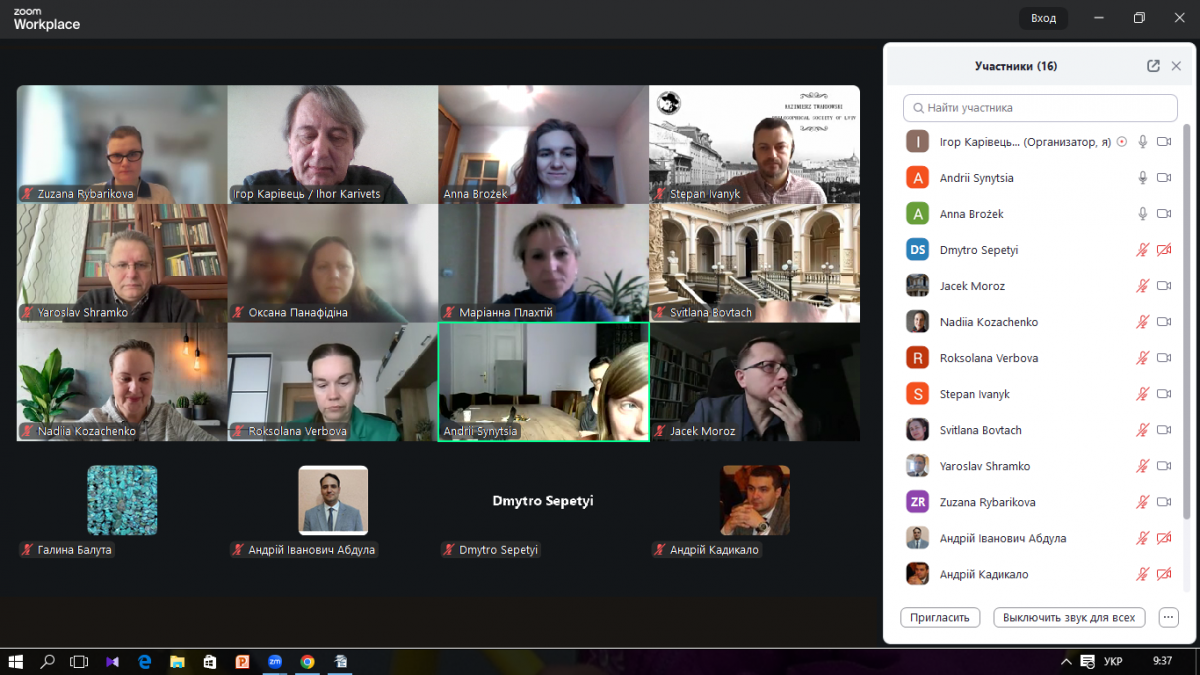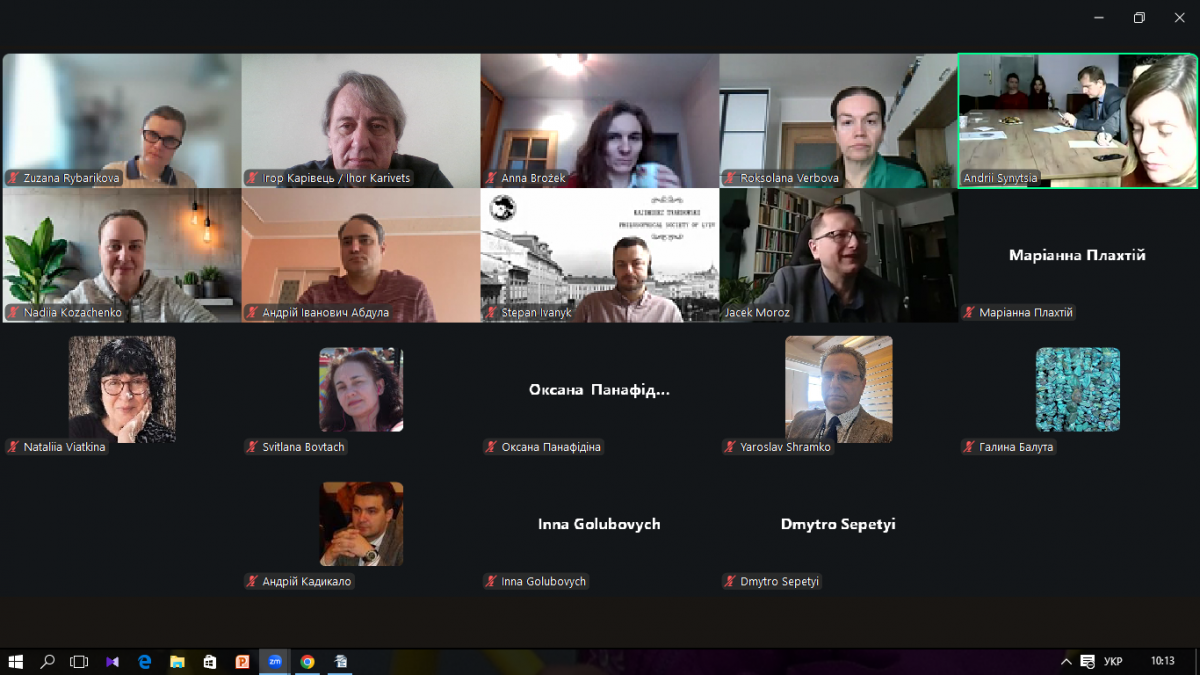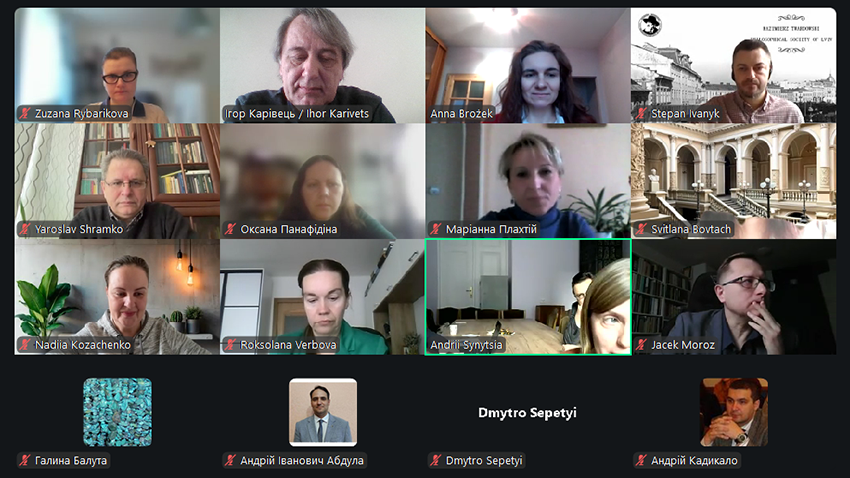The International Round Table "Lviv-Warsaw School: To the 130th Anniversary of Its Foundation" was held on 15 November, 2025. It gathered scientists from Ukraine, Poland and the Czech Republic. The organizers of the event were the Department of Philosophy, the Institute of the Humanities and Social Sciences, Lviv Polytechnic National University, and the Kazimierz Twardowski Philosophical Society of Lviv
The topics of the issues discussed by the participants were wide: from the peculiarities of the metaphilosophical reasoning of Kazimierz Twardowski to the role of teaching logic in the formation of the culture of thinking and the place of the Lviv-Warsaw School in the history of Ukrainian philosophy and its influence on modern research in the field of philosophy.
Professor Anna Brożek from the University of Warsaw, head of the Center for Research on the Heritage of the Lviv-Warsaw School, focused on philosophy as a way of life. The metaphor of philosophy as a «guiding star» has two dimensions, namely individual and social. At the individual level, philosophy can inspire, help overcome life’s difficulties, and maintain inner peace in adverse circumstances. A person can achieve these virtues (inspiration, resilience, endurance) through philosophical education, but he or she must constantly be in the environment of true philosophers. Society needs intelligent people, so it should be interested in the development of philosophical education that contributes to the formation of humanity, good behavior, and a critical worldview.
Doctor of Philosophy Zuzana Rybarikova from the University of Ostrava shared her thoughts on the role of women in the Lviv-Warsaw School. There were many of them, because out of approximately 120 members of the school, a third were women. They worked in various areas of philosophy – epistemology (theory of knowledge), ethics and aesthetics, sociology, methodology of science, history of philosophy, ontology, etc. – and achieved significant results in these areas.
Professor Andrii Synytsia, the Department of History of Philosophy, Ivan Franko National University of Lviv, raised the issue of the national affiliation of the Lviv-Warsaw School, whose representatives were Poles, Jews, Austrians, Germans, and Ukrainians. He gave the example of the French reception of the school, which is universalist and goes beyond the Polishness of this institution. In contrast, the Ukrainian reception is narrowed, because in Ukraine it is perceived as purely Polish, and the representatives of the school are considered strong patriots of Poland. Such differing interpretations are conditioned by the French-Polish and Polish-Ukrainian experiences of relations in the historical and political context.
